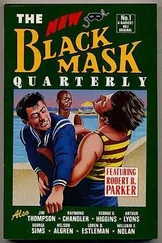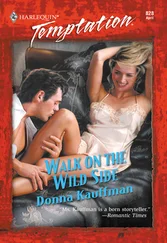And his heart remembered the harlots’ streets till it came to a rutted and unpaved road at the end of a little lost town. A town where time, going backward, had left great paving stones severed by wind and sand. And felt the wind still coming across the mesquite to where a single gas lamp at the end of town made a lonely fire. By midnight its faltering, flickering glow would lighten a legend across a dark pane:
LA FE EN DIOS
Bien venidas, todas ustedes
‘Terasina,’ the boy asked in a small awed wonder of the woman who once had pitied his ignorance there, ‘Are you there? Are you there in your bed at the end of the world while I’m here in my bed at mine?’
On the morning that seven meal-tins came up instead of eight, an immediate clamor rose. A prisoner didn’t get breakfast the morning of his release. All were willing to go hungry for freedom’s sake. ‘Who’s makin’ it, Mr Foster?’ they had to know, ‘Who’s makin’ the big door?’
Dove, on his haunches and his blanket over his shoulders, answered instead for Mister Foster.
‘All you crim’nals can quit worryin’. It’s Linkhorn makin’ it today.’ He had kept exact count of the days.
The Rag, the Timberwolf, Sec Fiend, Natural Bug, Wayback and Out-Front, Chicken Spanker and the Honorable William Makepeace Murphy crowded about to wish him the worst.
‘You’ll be back tomorrow!’ Wayback promised.
‘Hell, he’ll be back tonight,’ Out-Front was sure.
‘Meanwhile, make this last you,’ Murphy said, and presented Dove with a sack of Bull Durham, neatly tied as a gift ought to be.
Dove hesitated. Gathered crumb by crumb from seven sacks, it was nearly three-quarters full. ‘ And the papers,’ Murphy added proudly, holding out the pitiful gift.
Dove accepted. ‘I’ll see you guys,’ he told them, then shook hands on that understood lie, knowing he would never see a man of them all again.
In the mixed-up April of ’32 the numbers of jobless rose to eight millions, two hundred thousand steelworkers took a fifteen percent wage cut and it took a cardinal to perceive that the country’s economic collapse was actually a wonderful piece of luck, for every day it brought thousands closer to the poverty of Christ, who had been nowhere near before. For thousands it was the chance of a lifetime to bring Jesus’ simplicity, the cardinal said, right into the home. All over the country men and women and even small children began taking advantage of this spiritual opportunity. All manner of little goodies like that were lying about in the mixed-up April of ’32.
The D.A.R. demanded that unemployed aliens be deported; a mob lynched a man at Atwood, Kansas; a detachment of the Nicaraguan National Guard killed its American commander; a crisis in unemployment relief was imminent; somebody shot the President of France; cotton was up slightly following wheat and Huey Long said the time had arrived to redistribute the wealth. Russ Columbo was still singing Please .
Cuban sugar was held to imperil our own; Mayor Walker announced that New York Had Kept The Faith. The search for the missing Lindbergh infant was extended to England; Al Capone was on his way to Atlanta. Mayor Walker decried local pay reductions and Huey Long said he would vote Farmer-Labor before he’d vote with the ‘Baruch-Morgan-Rockefeller Democrats.’ Cotton was down again following wheat but the Congress decided not to redistribute the wealth after all.
In the curious April of ’32 Mussolini wrote a play and Calvin Coolidge had to make public apology and pay a St Louis insurance man twenty-five hundred dollars for calling insurance abstractors ‘twisters’ in a radio speech. Max Schmeling was taking his forthcoming fight with Sharkey seriously; California refused to pardon Tom Mooney and people were still singing I Surrender Dear . Senator Borah demanded that arms be reduced and atoms of hydrogen were transmuted to atoms of helium. The president of the University of Wisconsin announced that statesmanship had come to a full stop; Herbert Hoover was having his portrait painted; the Congress was asked to unseat Senator Bankhead and the crisis in unemployment relief was more imminent than ever.
In curious, long-ago ’32 so many people were saying that Prohibition was a failure that the New York Chamber of Commerce said it officially. Cotton was up again following wheat and domestic wine-growers demanded that domestic wines be made legal. A fragment of a human jawbone found near Lake Victoria was believed to be that of the earliest man. The Congress refused to unseat anybody. Kansas was the last state still voting dry and even Kansas was close to going wet. Sharkey was taking his forthcoming fight with Schmeling seriously and an ash-dust obscured the sun over Buenos Aires for forty hours.
‘The darker the valley the more the spirit of Christ-like charity appears,’ said that same cardinal in that strange brief spring, and New Orleans began planning a beer parade.
There, in Dockery’s Dollhouse while the juke played
Chinatown My Chinatown
When the lights are low—
a straight-haired flat-chested hard-of-eye hustler called Tough Kitty was trying to get credit for just one little beer.
But the bartender, acting as oddly as Hoover, didn’t seem to hear.
‘Did my husband leave owing you money or something?’ she wanted to know. ‘Is that what’s making you so salty over a simple deal like a glass of green beer?’
‘If you’re talking about a party name of Finnerty,’ Doc advised the girl, ‘he surely did, for he’s gone and he’ll never return.’
‘So long as I’m around you can be sure that sooner or later he’ll show up,’ Tough Kitty promised upon her word. ‘He thinks too much of me to leave me stranded and broke.’
‘He thinks so much of you,’ the old man asked mildly, ‘where is he now?’
‘I’m not free to tell,’ the girl answered before he’d finished asking.
‘And I’m not free to hand out free beers,’ Doc answered almost as fast.
So she drew from the pocket of her faded blue jeans a small change-purse and emptied it on the bar: twelve pennies and one nickel.
‘I got enough for a beer,’ she took count, ‘but not enough to get drunk on.’ And looked left-out of everything.
The old man brought the beer and scooped up half her pennies. ‘I’ve got a little money put by,’ he recalled casually, ‘I’d like to invest in a chicken farm. Do you know where I can go for advice?’
‘Why, that’s exactly what my Oliver—’ she cut herself short, the shrewd hard girl as gullible at the last as any. And the old man turned back to his dolls.
His dolls that were never drunken.
Someone pressed the buzzer just right and, peering out, he saw that bully, missing many days, that once had called himself Stingaree.
It was plain enough, the moment Dove came in, that if he wasn’t just out of hospital he was just out of jail. But so many had been in and out since the old man had last seen this one he had lost track of who was in where and who was out. And didn’t much care which.
‘Stay as long as you got something to spend,’ he warned the fellow, ‘then get out. Don’t let me catch you cadging others for drinks.’
‘I bought drinks for others a-plenty here and you never seemed to mind, old man,’ Dove reminded him.
‘I don’t mind yet,’ old Doc assured him. ‘Buy as many for others as you want. What are you having yourself?’
‘Whiskey and wash,’ Dove told him. The old man waited till he’d put his money down.
Dove poured his whiskey into his beer, taking his time with the pouring. Then took it to a table by himself, saying hello to no one. In the dingy light the panders and their women moved like people under water. Overhead the slow fans beat like the beat of a ship’s propellers heard on a deep sea floor. Though he had known everyone in the place by his or her first name only five months before, now they seemed people from some lost lifetime hardly known at all. When he asked a woman if she had seen Hallie, all he got was a shrug. Either the woman didn’t know or was too careful too tell. Nobody was long remembered on Old Perdido Street.
Читать дальше












